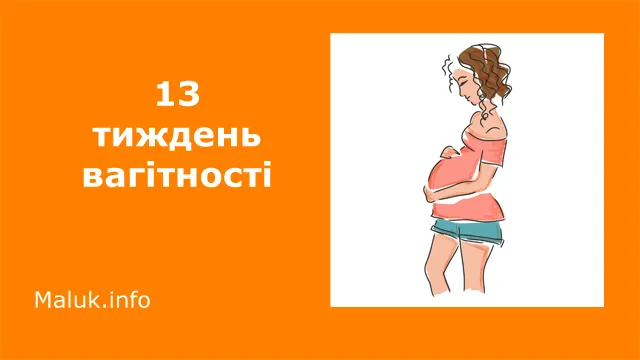Pregnancy calendar: 13th week of pregnancy
Pregnancy calendar by week. An experienced doctor tells how a child develops in the womb and what changes occur in the pregnant woman’s body. All the most important things about the 13th week of pregnancy
Changes in your body:
At the first visit, the obstetrician-gynecologist must measure your body weight and height. Based on these indicators of body weight and height, determine the body mass index. Body mass index is an important indicator that shows what tactics you should choose in relation to nutrition. Normal indicators are within 19 – 24. If it is less than 19, you should eat better, eat more caloric food, if, on the contrary, the body mass index is higher, you should control the amount of caloric food, replace it with salads, fruits.
Read more about body mass index here .
( second ) visit, which should be in two weeks, the obstetrician-gynecologist will appoint a laboratory examination:
- General urinalysis, including a test for the presence of protein in the urine.
- Urine culture (screening for asymptomatic bacteriuria).
- Blood type and Rh factor.
- The presence of Rhesus antibodies (if you have an Rh-negative blood group, and the child’s father has an Rh-positive blood group).
- General blood test with determination of the number of platelets.
- Serological examination for syphilis (first).
- Test for HIV infection (first).
- HBsAg test.
- Smear for cytological examination, which is taken during a gynecological examination.
- A smear on the flora (if vaginosis is suspected), which is taken during a gynecological examination.
During the first ultrasound examination, which should be carried out in the period from 11 weeks + 1 day. up to 13 weeks + 6
days, at the same time blood is taken from a vein for a double biochemical test (free chorionic gonadotropin
human (hCG), pregnancy-associated plasma protein A (PAPP)) and calculation of the risk of the presence of chromosomal and other widespread congenital pathology in the fetus.
How does the baby grow?
The baby’s movements become more complex. When the baby is awake, it is constantly moving.
The child’s gastrointestinal tract is developing. The baby swallows the amniotic fluid.
The functions of the genitourinary system are developing. The kidneys produce urine, the child urinates. In the ovaries of girls, the laying of follicles containing future eggs took place, in total up to 2 million primary follicles are formed, which will begin to develop already in the fertile period of a sexually mature woman.
Author: Olga Letnyanchyk, doctor
Read also:
– Pregnancy calendar: from 1 to 40 weeks

